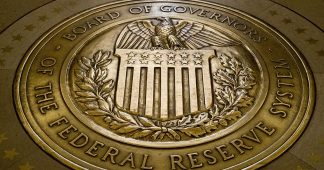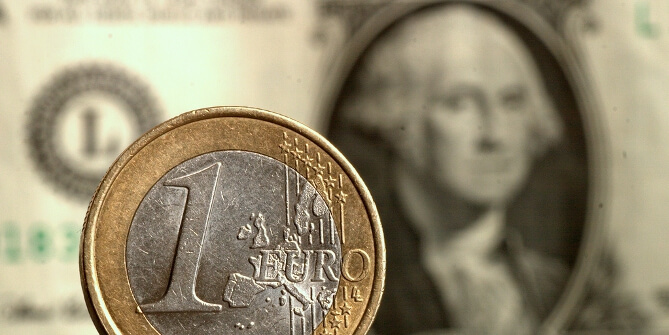In a note published earlier, Zoltan Pozsar, Global Head of Short-Term Interest Rate Strategy at Credit Suisse, wrote this crisis is not like anything we have seen since President Nixon took the U.S. dollar off gold in 1971 – the end of the era of commodity-based money. When this crisis is over, the U.S. dollar should be much weaker. He believes the global monetary system will never be the same post the crisis.
Mar 21, 2022
“We are witnessing the birth of Bretton Woods III – a new world (monetary) order centered around commodity-based currencies in the East that will likely weaken the Eurodollar system and also contribute to inflationary forces in the West.” – Zoltan Pozsar, Former Federal Reserve and U.S. Treasury Department official, and now Credit Suisse Global Head of Short-Term Interest Rate Strategy based in New York.
In a note published earlier, Zoltan wrote this crisis is not like anything we have seen since President Nixon took the U.S. dollar off gold in 1971 – the end of the era of commodity-based money. When this crisis is over, the U.S. dollar should be much weaker. From the Bretton Woods era backed by gold bullion, to Bretton Woods II backed by inside money (Treasuries with un-hedgeable confiscation risks), to Bretton Woods III backed by outside money (gold bullion and other commodities), Zoltan believes the global monetary system will never be the same post the crisis.
Zoltan said a crisis of commodities could be unfolding. Commodities are collateral, and collateral is money, and this crisis is about the rising allure of outside money over inside money. Bretton Woods II was built on inside money, and its foundations crumbled a week ago when the G7 seized Russia’s FX reserve.
By reviewing the parallels between the crises currently unfolding and the crises of 1997, 1998, 2008, and 2020, Zoltan further mentioned we could draw the conclusions that every crisis occurs at the intersection of funding and collateral markets. At present, commodities are collateral, and more precisely, Russian commodities are like subprime collateral and everything else is prime. According to Zoltan, if we link them up with the four prices of money – namely Par, Interest, Exchange rate and Price level – we see a pattern which should make us concerned.
- Par– this is what broke in 2008 when money funds broke the buck and funding markets froze from fearing subprime mortgage collateral.
- Interest– this is what broke in 2020 when bond RV trades failed as the drawdown of credit lines pulled funding away from good collateral.
- Exchange rate– this is what broke in 1997 when collateral (FX reserves) went missing and U.S. dollar funding staged a sudden stop in Asia.
- Price level– this is what’s in focus as we speak.
Zoltan further adds that commodities used to trade at tight spreads until now. They no longer trade at par. There are Russian commodities that are collapsing in price and there are non-Russian commodities that are rallying – this is due to the 2022 Russia supply shock which is driven by present and future sanctions-related stigma. Zoltan wrote it’s a buyer’s strike, not a seller’s strike. He believes Russian commodities today are like subprime CDOs were in 2008. Conversely, non-Russian commodities are like U.S. Treasury securities back in 2008. One collapsing in price, and the other one surging, with margin calls on both regardless of which side you are on. “Commodities basis” is climbing.
Zoltan also pointed out from the 1997, 2008 and 2020 crises, we learned that someone, somehow must always provide a backstop. He believes Western central banks cannot close the gaping “commodities basis” because their respective sovereigns are the ones driving the sanctions. They will have to deal with the inflationary impacts of the “commodities basis” and try to cool them with rate hikes, but they will not be able to provide the outside spreads and won’t be able to provide balance sheet to close “Russia-non-Russia” spreads. Commodity traders wouldn’t be able to either. So who would provide the backdrop this time he questions.
Published at www.credit-suisse.com
We remind our readers that publication of articles on our site does not mean that we agree with what is written. Our policy is to publish anything which we consider of interest, so as to assist our readers in forming their opinions. Sometimes we even publish articles with which we totally disagree, since we believe it is important for our readers to be informed on as wide a spectrum of views as possible.











